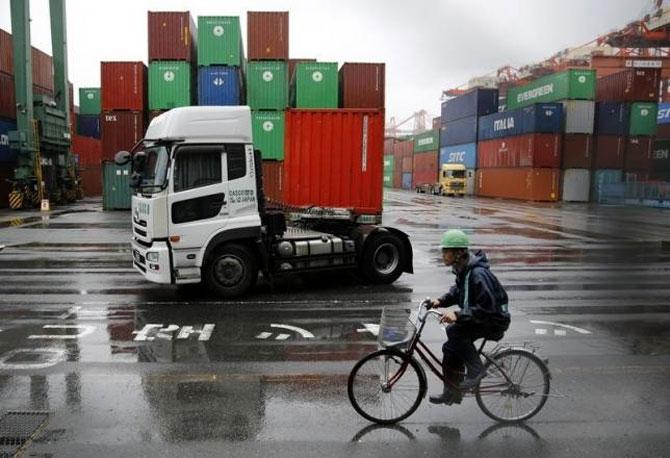
India's rank remained unchanged at 19th in 2014 among the top 30 merchandise exporters of the world, while China continues to hold the top slot, according to World Trade Otganisation report.
Similarly, New Delhi's rank as a leading importer too has not changed in 2014 at 12th position. In imports, the US topped the list.
In 2014, India's exports stood at $317 billion while imports were $460 billion. In 2013, the country's outbound and inbound shipments aggregated at $312 billion and $466 billion respectively.
"India suffered a bit of a slowdown in 2013 but recovered in 2014. So its import demand has picked up and its exports are holding up," Economic Affairs Officer Coleman Nee told PTI.
India’s exports by volume fell from 8.5 per cent in 2013 to 3.5 per cent in 2014 while 2013 had been a bad year for India in terms of imports by volume rebounded from - 0.3 per cent in 2013 to 2.9 per cent in 2014.
Further India has slipped to 8th and 10th rank last year amongst the top 30 leading exporters and importers of commercial services respectively. Its position was 6th and 7th in 2013. This list was topped by the US in both exports and imports.
In 2014, India's commercial services exports aggregated at $154 billion while imports were $124 billion.
Indian government has recently announced incentives and new institutional mechanisms as part of the new Foreign Trade Policy to nearly double country's goods and services exports to $900 billion by 2019-2020.
India figured fifth for exports and sixth for imports for commercial services excluding intra-EU trade for 2014.
The report said that China registered the highest merchandise trade by value in 2014 with $2,343 billion worth of exports but the US sustained the world imports at $2,409 billion.
The total world merchandise exports were $18,427 billion whereas imports were $18, 574 billion.
"South-South trade represented 52 per cent of developing countries’ exports in 2014 which mean developing countries today trade on average more with other developing countries than rich, industrialized countries…It shows a shift in the economic but also the political governance of the world economy," said chief statistician of WTO, Hubert Escaith.







